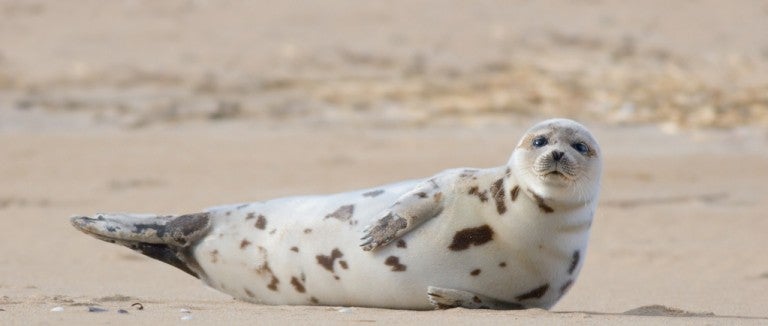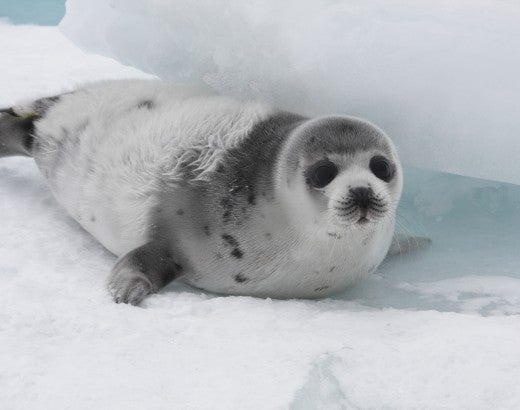For years, Scotland has allowed fish farmers and other fisheries to shoot seals in order to keep them from eating their fish —a brutal practice that has resulted in so much unnecessary suffering and death among these charismatic marine mammals. Last week, in a long-awaited move that Humane Society International/United Kingdom fought hard for, Scotland finally changed its laws, banning this cruel cull. It also added tough penalties for anyone found in violation.
The ban is also a victory for animal lovers in the United States. It was introduced in the Scottish parliament after the U.S. government, pressed by the Humane Society of the United States and the Humane Society Legislative Fund, changed regulatory requirements under the Marine Mammal Protection Act to mandate all fish imports from Scotland stop after 2022 if that nation continues to allow fish farmers and fisheries to kill and harm seals.
With organizations like HSI working to raise awareness, there is also growing understanding within Scotland about the need to end such cruelty. Officials from Marine Scotland, the government agency that oversees Scotland’s coastal waters and seas, told members of the Scottish parliament that their goal, with the ban, is to enhance and improve the welfare of seals.
Under the new law, penalties for illegal seal shooting could include 12 months’ imprisonment and a fine of £40,000 (around $50,000). Upon indictment, this could increase to an unlimited fine and five years’ imprisonment.
There is no justification for killing and hurting seals who are just trying to survive by eating fish in the oceans they inhabit. HSI/U.K. has worked hard to illustrate the cruelty of culling, including the lack of any independent oversight, under-reporting of numbers of seals killed, the killing of pregnant females and mothers who may have dependent pups, and evidence that shooting does not always lead to instantaneous death.
The U.K. is home to two important seal species, the grey seal and the harbor seal, and both face recovery challenges in a warming ocean. Moreover, seal populations are still declining in some parts of the world.
We applaud Scotland for taking decisive steps to ban the unnecessary and unkind cull and we are now calling for the ban to be swiftly enforced and for careful and independent monitoring of the situation to ensure that there is no spike in seal killing before the law is fully implemented, or any illegal killing afterwards. Seals face a multitude of threats today, including entanglement in fishing gear and marine litter, pollution, and disturbance on their breeding and molting grounds, and it is imperative that all nations act to protect these marine mammals who play such an important role in keeping our oceans healthy.



